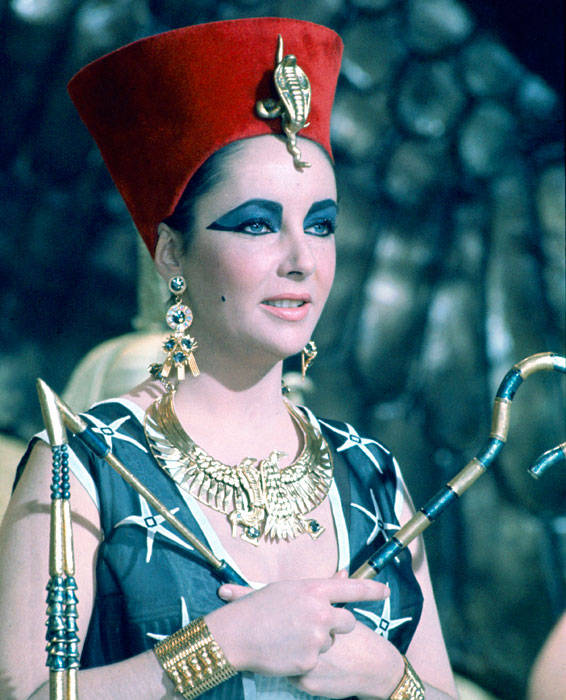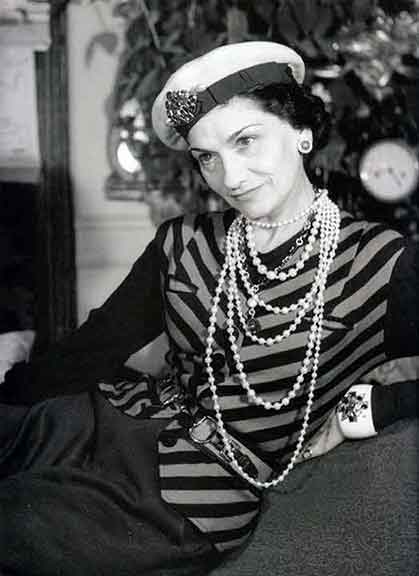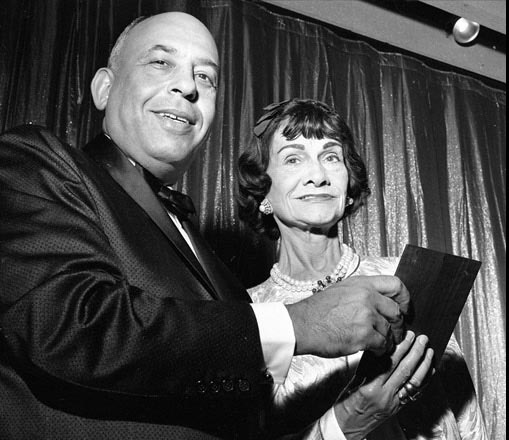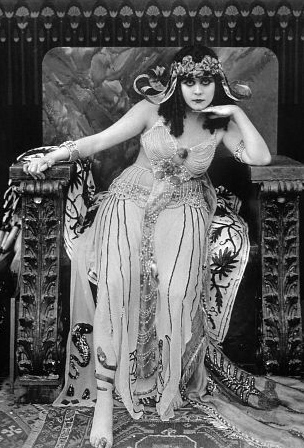Love on the rocks. It may have begun with Antony’s affair with Cleopatra, which was, at the beginning, a statecraft spiced with pleasure. However, it turned into infatuation poisoned by statecraft. And then came the denouement. Perhaps love and politics don’t mix…
On September 2, 31 B.C. in the Bay of Actium off the west coast of Greece, the brave and vaunting Mark Antony, co-ruler of the Roman world, fixed himself forever in human memory as the most besotted lover in human history. That day, locked in combat for supremacy of the Roman world, Anthony abandoned his ships and his troops and set off in hot pursuit of Queen Cleopatra as she sailed away from the battle.
Antony’s sailors surrendered, his leaderless army laid down its arms. His hated rival Octavian became the first emperor of Rome. In a singular act of blind frustration Antony had encompassed a singularly shattering ruin, and the story of it has bemused humankind ever since.
And well it might. For no other major episode in history has been shaped so decisively by the essentially private passion of love. Yet, there has always been something amiss in the story. It is our common experience of love that arouses our suspicion, for love normally runs a course from hoot to warm to cool. With Antony, it began cool and ended in consuming passion. At its outset, Antony’s affair with Cleopatra was chiefly statecraft spiced with pleasure. Not for years would it become infatuation poisoned by statecraft.
Even Shakespeare got it wrong. He assumed that Antony was more or less in Cleopatra’s thrall. Even that left a problem: the sheer durability of Cleopatra’s appeal. The Bard had little explanation why Cleopatra should finally enslave Antony ten years after she first became his mistress. To understand that, we should probably part from the arena of love and return to the loveless arena of power.
For Anthony, the issue was how to establish autocratic power on some sort of legitimate foundation, in what was still, in theory, a republic. In 41 B.C. when Antony summoned Cleopatra to his royal bed autocratic power of the most commanding sort was his to enjoy, though it rested on shaky foundations. Antony was Ceasar’s spiritual heir but had no tangible legitimacy, since Octavian was Ceasar’s legal heir. From the moment he went East to rule his half of the world, his life became one long quest for legitimacy. The quest took him to Cleopatra, queen and pharaoh of Egypt. The direction was all but inevitable.

Read More:http://jewelry.about.com/od/famousjewels/ig/Elizabeth-Taylor-Jewelry/Elizabeth-Taylor-as-Cleopatra.htm
If Antony could conquer and annex the eastern empire of the Parthians, he could realize Ceasar’s greatest military project and be hailed as Rome’s second founder. Egypt beckoned Antony immediately. If he could draw upon its riches, he could carry out his vast scheme of conquest without hindrance from Octavian. Egypt of course meant Cleopatra blocking Antony’s hunger for gold. But Cleopatra had other charms. She had been Ceasar’s mistress and the mother of his child. The idea of trumping Ceasar’s adopted son by championing his blood son was ever present in the Ceasar haunted brain of Antony. Hoping to secure the independence of her dynasty, Cleopatra fell in with Antony’s plans and into his arms.

---...his organization was "shocked" by the charges in "Sleeping with the Enemy: Coco Chanel's Secret War," by Hal Vaughan, and "the blithe and unsupported rejection of these charges by the Chanel fashion house." The book builds on past evidence to describe the secret life of Chanel, a fashion icon, as a "fierce" anti-Semite recruited by the Abwehr military intelligence organization, as well as the lover of Baron Hans Gunther von Dincklage, described as a "Nazi master spy." The book gives her agent number as F-7124 and code-name as "Westminister," after the duke with whom she had another affair. The Chanel group in a statement denied the allegations beyond that "she had a relationship with a German aristocrat during the war" and "Clearly it wasn't the best period to have a love story with a German."---Read More:http://www.jpost.com/International/Article.aspx?id=234250 image:ht
/www.dnewsglobal.com/legendary-fashion-designer-coco-chanel-suspected-nazi-spy/6481.htmlShe quickly discovered Antony’s glaring weakness. He loved the noise and tumult of revelry and the ecstatic pleasures of victory. He loved great deeds, but he loved even more the celebration of them. He had the ambition to reign as king, but his greatest joy was to ride in triumph. So, he was not at all Cleopatra’s infatuated lover. Her promise to put Egypt’s wealth at his disposal, she perceived was tempered by the understanding that Antony’s Parthian campaign was more a political necessity than an overflowing ambition. In return for gold, she demanded large chunks of Roman territory for her dynasty and he had no choice but to agree.

---"While French Resistance fighters were shooting Germans in the summer of 1941, Chanel was recruited as an agent by the Abwehr," the book claims. Chanel travelled to Spain with Baron Louis de Vaufreland, a French traitor whose job was to "identify men and women who could be recruited, or coerced, into spying for Nazi Germany." Mr. Vaughan also cites a British secret intelligence report documenting what Count Joseph von Ledebur-Wicheln, an Abwehr agent and defector, told MI6 in 1944. In the file, he discussed how Chanel and von Dincklage visited Berlin in 1943 to offer Chanel's services as an agent to Heinrich Himmler. The book adds weight to reports Winston Churchill intervened to spare Chanel - a friend from before the war - from arrest and trial, despite the fact she was on French Resistance "death rosters" as a collaborator. She fled to Switzerland, only to return in 1954 to resurrect her reputation and reinvent the House of Chanel.--- Read More:http://www.nationalpost.com/Chanel+7124/5264413/story.html image:http://www.styleamor.com/2010/05/coco-chanels-disturbing-little-secret/
Antony’s predicament was that the more dependent he became on Egypt, the less secure his support in Rome. The nimble Parthian cavalry almost destroyed Antony’s army and he was never the same again. His vainglory, hitherto an amusing vice, now became dangerous, and Cleopatra exploited it to secure her own dynasty. In Egypt,Antony was a pharaoh’s consort, the god Dionysus incarnate. Ultimately, Antony was compelled to wage civil war against Ceasar’s legal heir, Ocatavian.

---Crystal Bridges Museum of American Art, a complex of eight gallery pavilions it has helped build around a pair of ponds in the company's northwestern Arkansas hometown of Bentonville (population 35,301). The museum, designed by architect Moshe Safdie, is named for a nearby spring and its bridge-like architectural elements. The 201,000 square-foot museum, which opens to the public Nov. 11, aims to chronicle the entire story of American art from the Colonial era of the late 1600s to contemporary pieces made by American artists a few months ago—an encyclopedic sweep reminiscent of the ambitions of the robber-baron museum builders in the Gilded Age, but rarely attempted by new museums today. ... The guiding force behind the museum—and the gift made Wednesday—is Ms. Walton, 61 years old, a well-known player in the art world who conceived the museum six years ago and has spent lavishly to build up its collection from scratch. In 2005, she outbid the National Gallery of Art to buy Asher B. Durand's Hudson River School masterpiece, "Kindred Spirits," from the New York Public Library, paying around $35 million. The following year, she and the National Gallery jointly bid $68 million to buy Thomas Jefferson University's Thomas Eakins masterpiece, "The Gross Clinic." The move caused a furor among art lovers in Philadelphia, though, and a consortium of local museums eventually raised enough funds to keep the Eakins. Read More:http://online.wsj.com/article/SB10001424052748704810504576305561994960474.html
Ultimately, Antony was beaten not by Cleopatra’s allure but by Ceasar’s daunting presence. He had failed in his quest for legitimacy; he had failed as the executor of Ceasar’s plans. As civil war tensions mounted, a change came over Antony. The more he was forced to turn away from Ceasar’s memory, the more desperately he clung to Ceasar’s mistress. At Actium, his infatuation for Cleopatra was not his downfall but merely the final straw and ultimately it cost him his honor and his name.
Posterity is only half right in remembering Antony as the man who encompassed his ruin for love. That love had been born in his poltical ruin, and in his ruin as a man.







 COMMENTS
COMMENTS